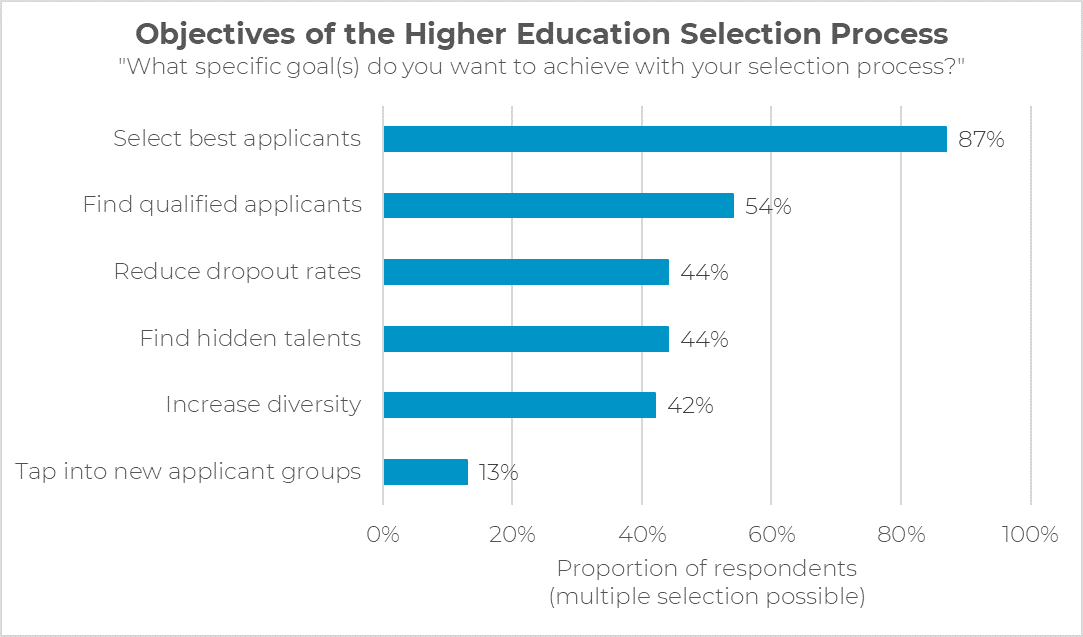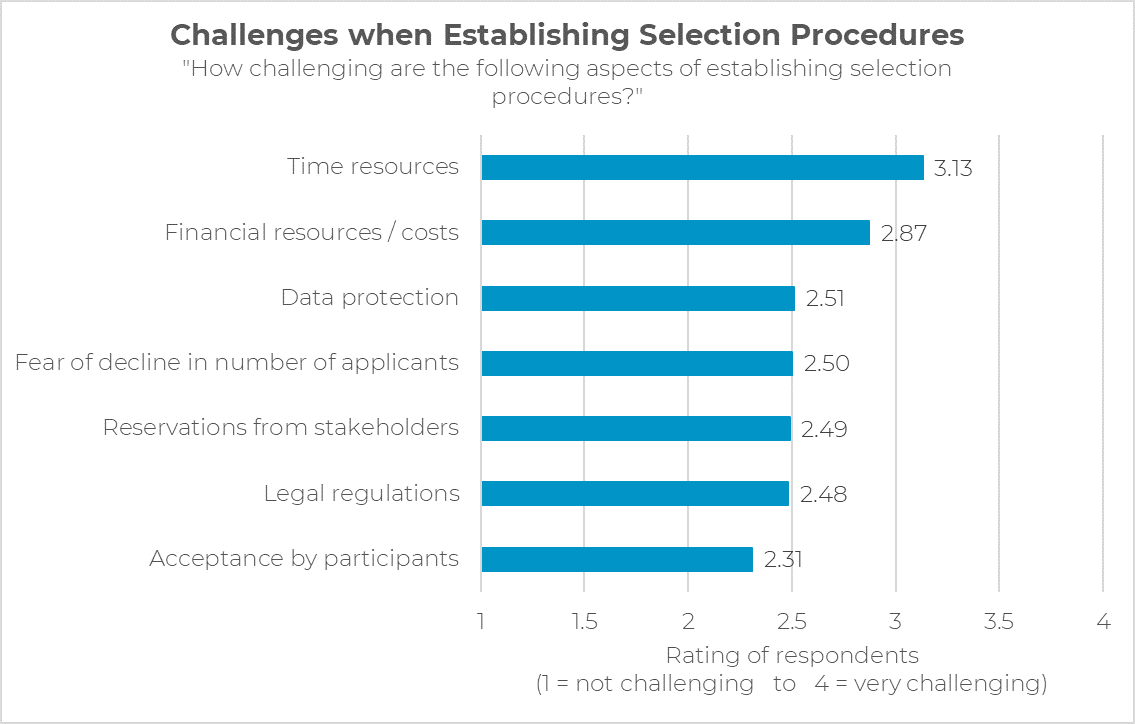In an increasingly competitive higher education landscape, institutions face complex decisions regarding their admissions processes. A recent survey of experts from 14 countries (Austria, Brazil, Canada, France, Germany, India, Mexico, Netherlands, South Africa, Spain, Switzerland, UAE, UK, USA), including admissions professionals and faculty members, sheds light on the primary objectives and challenges in student selection.
Key Objectives of Admission Procedures
Our survey confirmed that selecting the best applicants remains the paramount objective of admission procedures. However, other objectives also proved to be important, as the graph shows:

The goal of selecting the best applicants has always been crucial. However, today’s degrees are more heterogeneous, and international mobility has increased, resulting in more diverse qualifications that are less easily evaluated through school certificates alone. Consequently, identifying applicants with sufficient qualifications has become a primary focus.
The high importance placed on reducing dropout rates may be linked to the persistently high attrition rates in higher education. In Germany, for instance, the dropout rate among international students, who play an increasingly crucial role for German universities, exceeds 40 percent (Heublein et al., 2022).
Demographic changes in many countries are leading to skilled labour shortages and declining student numbers. As a result, it has become increasingly important to utilise all available potential and to seek talent even where formal qualifications may be lacking or school grades are weak (hidden talents).
The emphasis on increasing diversity is likely to grow further, as a society’s potential can be better harnessed by incorporating diverse perspectives and providing opportunities to individuals with varied profiles through different access pathways.
These findings underscore the multifaceted nature of admissions, balancing academic excellence with broader institutional goals such as student retention and diversity.
Challenges Faced by Admissions Departments
While striving to meet these objectives, admissions departments encounter several challenges. Our survey highlighted seven key areas of difficulty, rated on a scale from 1 (not challenging) to 4 (very challenging), with resources aspects at the top:

Notably, time and financial resources emerged as the most pressing concerns, scoring above 2.5 on the scale. This suggests that admissions teams, already burdened with significant administrative responsibilities, could benefit from additional support to effectively manage their workload. Interestingly, legal regulations and data protection challenges were less pronounced than anticipated, particularly when comparing EU and non-EU countries:
- Legal regulations: EU & Switzerland (2.58) vs. non-EU (2.21)
- Data protection: EU & Switzerland (2.54) vs. non-EU (2.43)
This relatively small difference may indicate a global trend towards stricter data protection measures, even in regions without regulations according to GDPR (General Data Protection Regulation).
Implications for Higher Education Institutions
Our survey results highlight the need for efficient, resource-conscious admissions processes that can meet diverse institutional goals while navigating legal and ethical considerations. Useful starting points for higher education institutions include:
- Implementing more streamlined selection methods to address time and resource constraints
- Investing in technology and training to support staff in admission offices
- Developing strategies to maintain applicant numbers in an increasingly competitive landscape
- Engaging stakeholders to address reservations and ensure commitment to admissions procedures
By addressing these challenges, institutions can create more effective and equitable admissions processes that align with their strategic objectives and the evolving landscape of higher education.
Cited literature:
Heublein, U., Hutzsch, C., & Schmelzer, R.
(2022). Die Entwicklung der Studienabbruchquoten in Deutschland. DZHW-Brief 02/2022.



